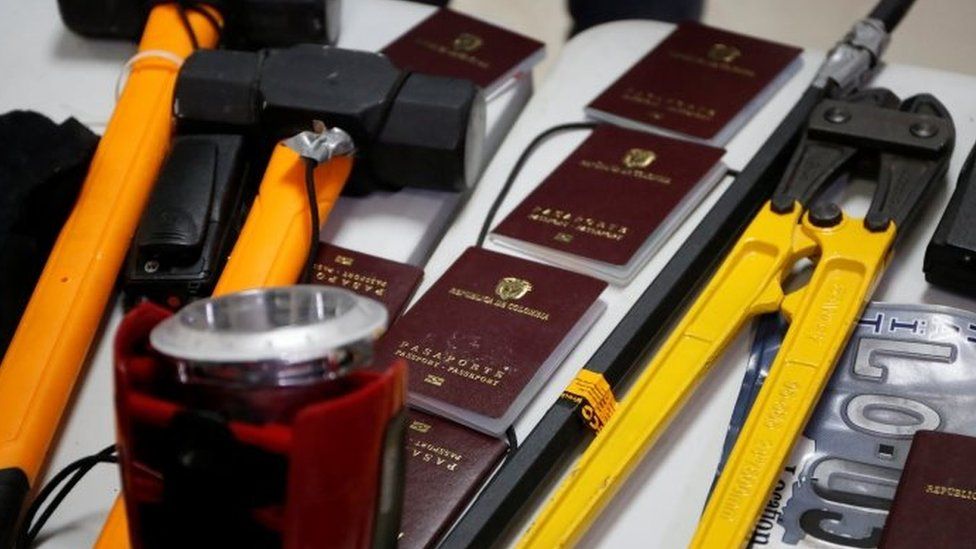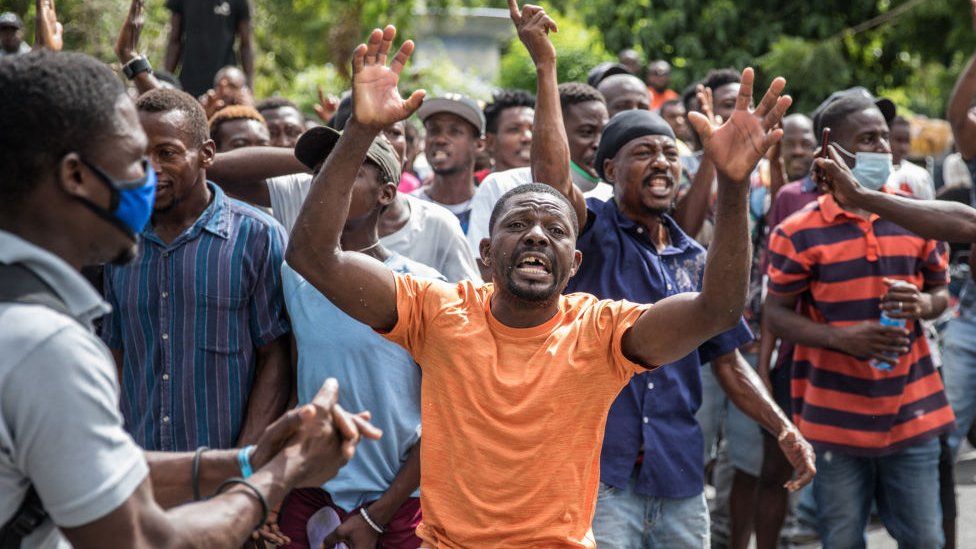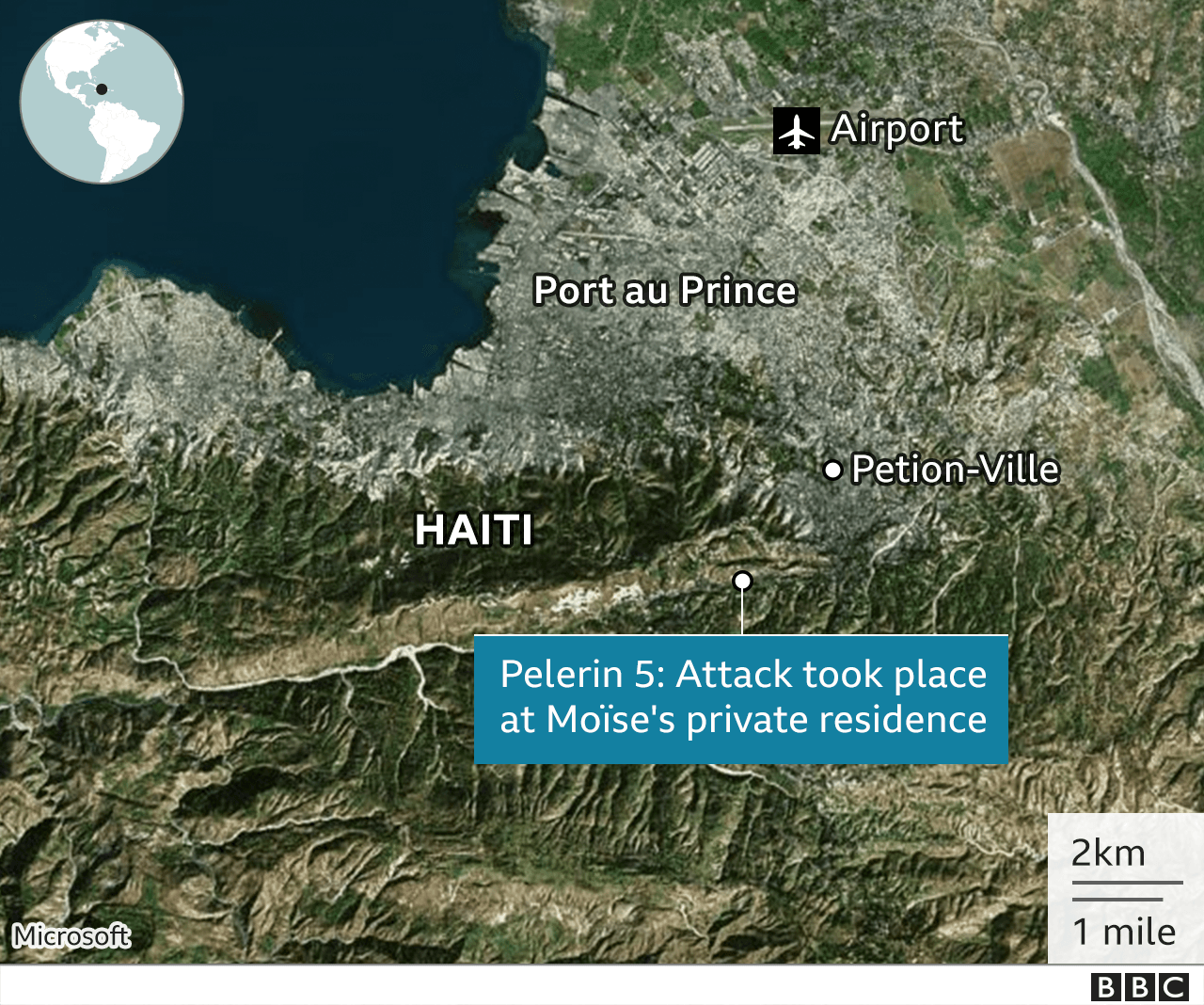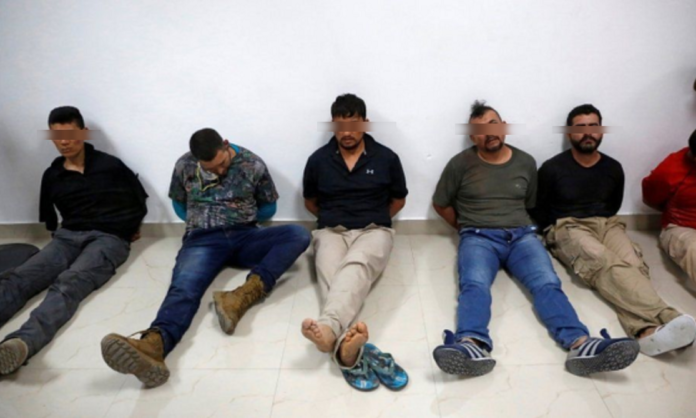A group of 28 foreign mercenaries, including retired Colombian soldiers, assassinated Haiti’s President Jovenel Moïse earlier this week, police say.
After a gun battle in the capital Port-au-Prince, 17 were detained, some at the house they were using, others after entering Taiwan’s diplomatic compound.
Three suspects were killed by police and eight are still being sought.
Bloodied and bruised, arrested suspects were shown to the media on Thursday, along with a slew of seized weapons.
It is still unclear who organised the attack and with what motive.
The attack took place in the early hours of Wednesday, when gunmen broke into the president’s home in Port-au-Prince, shooting him dead and wounding his wife. Mr Moïse, 53, was found lying on his back with 12 bullet wounds and a gouged eye, according to authorities.
Martine Moïse, 47, was seriously wounded and is in a stable condition after being flown to Florida for treatment.
Seized weapons and passports
Police said the hit squad included mainly Colombians, along with two Haitian-Americans.
Found in the suspects’ possession were firearms, sets of US dollar bills, the president’s personal chequebook and the server that held surveillance camera footage from his home, Le Nouvelliste newspaper reported.
Taiwan confirmed that 11 of the suspects were arrested after breaking into a courtyard at its compound.
Angry civilians had joined the search for the gunmen, and helped police track down some who were hiding in bushes. The crowd set fire to three of the suspects’ cars and destroyed evidence.
“We Haitians are appalled, we do not accept it,” one man told AFP news agency. “We are ready to help because we need to know who is behind this, their names, their background so that justice can do its job.”

Police chief Léon Charles called for calm, saying the public should not take the law into their own hands.
At the news conference on Thursday, police showed reporters Colombian passports.
“Foreigners came to our country to kill the president,” Mr Charles said, as the suspects sat on the floor behind him in handcuffs.
Colombia’s government has confirmed that at least six of the suspects appeared to be retired members of its military. It has pledged to assist Haiti with its investigation efforts.
The US state department, meanwhile, said it could not confirm if any of its citizens had been detained.
However US and Canadian media are reporting that one of the dual citizens arrested, James Solages, 35, is from Florida and was a former bodyguard at the Canadian embassy in Haiti.
An investigating judge told local media that Mr Solages and the other US citizen, named as Joseph Vincent, had said they were there as translators for the mercenaries, after finding the job on the internet.
“The mission was to arrest President Jovenel Moïse… and not to kill him,” Judge Clément Noël told Le Nouvelliste.

Colombian daily El Tiempo said that it had seen confidential documents that named the Colombian suspects. The paper’s research suggests that four of them flew from Colombia to the Dominican Republic on 4 June.
They crossed by land from there into Haiti two days later. The two countries share the island of Hispaniola.
According to El Tiempo, Colombian intelligence has seen photos posted on social media by members of the group, showing them posing at a popular tourist spot in the Dominican Republic.
The killing has triggered some civil unrest in Haiti, the poorest nation in the Americas. A state of emergency remains in force across the country, while the Dominican Republic has closed its border.
Who is in charge of the country?
The assassination has created confusion over who should lead Haiti, at least until elections are held.
The rules in the constitution have been muddied by the fact there is currently no National Assembly – disputes meant elections in October 2019 did not happen – so it cannot choose another president.

Amendments to the constitution, which are not accepted by everyone, suggest the prime minister should now lead, but Mr Joseph’s legitimacy is disputed.
Another politician, Ariel Henry, had been nominated as the new PM shortly before the assassination, but had yet to be sworn in.
The UN says Mr Joseph should remain in charge until elections are held later this year.
He has said he will not stand for the presidency. “I’m not here to stay too long. We need to hold elections. I do not have a personal agenda,” he told the BBC.
Haiti has long been plagued by political and economic instability, and more recently by increased gang warfare.
There had been widespread protests demanding the resignation of Mr Moïse, who had been ruling by decree since the delayed elections.

